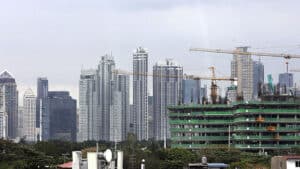Another way to lure investors

The business community cheered the signing into law last week of Republic Act No. 12066, or the Corporate Recovery and Tax Incentives for Enterprises to Maximize Opportunities for Reinvigorating the Economy (Create More) Act, which President Marcos said would help make the Philippines become a “destination of choice for investments.” The new law enhances the ease of doing business in the country by clarifying value-added tax (VAT) issues and providing more attractive tax incentives.
While it is true that tax and other fiscal perks help attract investors, a company considers other factors before deciding to invest in a particular economy. Among these are political stability, infrastructure, competition, market size, investment protection, and regulatory environment on the entry of investors.
For the Philippines, the government can look at the inaugural World Bank Business Ready 2024 (B-Ready) report released last month. It assessed the business climate in 50 economies, including the Philippines, and provided an extensive dataset–1,200 indicators per economy—to identify specific areas where there is room for improvement and motivate reforms.
Article continues after this advertisement
A salient finding of the report is that “economies tend to perform better at enacting regulations to improve the national business climate than they do in providing the public services needed to secure actual progress. In short, there is a sizable implementation gap,” said Indermit Singh Gill, chief economist and senior vice president for development economics at the World Bank.
Implementation gap
The Philippines is an example of this economy showing a “sizeable implementation gap.” It ranked a high 16th out of 50 economies in the regulatory framework with 70.68 points, putting it among the top 40 percent of economies in this pillar. However, the report showed the Philippines ranked 24th in public services and 36th in operational efficiency. Simply put, the Philippines, along with many other developing countries, is better at enacting regulations than providing public services.
“If we look by area, business entry is a crucial one because, in a way, regulations or poor implementation of regulations that prevent business entry are barriers to competition or barriers to having a more dynamic business environment,” said Gonzalo Varela, World Bank Group lead economist and program leader for Brunei, Malaysia, and Philippines Prosperity. The Philippines scored 48 points in business entry, landing at the bottom 20 percent of economies for this area.
Article continues after this advertisement
B-Ready report
This particular problem was also raised during the Pilipinas Conference 2024, organized by the Stratbase Group last Nov. 6 and 7. During the forum, Prime Infrastructure Capital Inc. president and chief executive officer Guillaume Lucci lamented that the primary challenge in infrastructure development was the implementation of policies at the local level. “I don’t think national policies are really the problem, frankly … If there is one area of bottleneck, I would say that is the implementation of those policies at the LGU (local government unit) level.”
It is imperative then that this issue should be dealt with along with the implementation of the new law providing additional tax perks to investors. In addressing this, the Anti-Red Tape Authority (Arta) will be playing a big role. Having been designated by the President as the focal point for the B-Ready report, Arta chief Ernesto Perez is aware of the task at hand. “The laws and regulations are already there and only need to be implemented, and the best way to implement them is to gather all the agencies involved and the support of the private sector,” he pointed out.
Red tape and corruption
On the sidelines of the Ease of Doing Business Convention last Oct. 28-30, Perez was optimistic that the Philippines would be included among the top 20 percent of countries assessed in the B-Ready report by 2026. To do this, Arta is forming technical working groups (TWG) to address priority areas. This month, Arta is holding a public sector consultation on the formulation of a reform guidebook that will serve as the agency’s road map, which it targets to be ready by June 2025, in making the Philippines more business ready.
Improving public services at the LGU level is very doable. Under the Ease of Doing Business Act, LGUs are required to implement an electronic business one-stop shop to expedite processing of all business permits. “Currently, 112 LGUs have complied with this requirement … and as records show, those first 10 LGUs that have been able to set up one have experienced substantial increases in their number of business registrations and revenue collections,” said Arta’s Perez. “This is the best evidence that when we streamline and digitalize government processes, we can be effective in our fight against red tape and corruption in the process.”
It is by addressing this aspect of the B-Ready report that the Philippines will truly be an attractive investment destination that the government has long dreamed of.